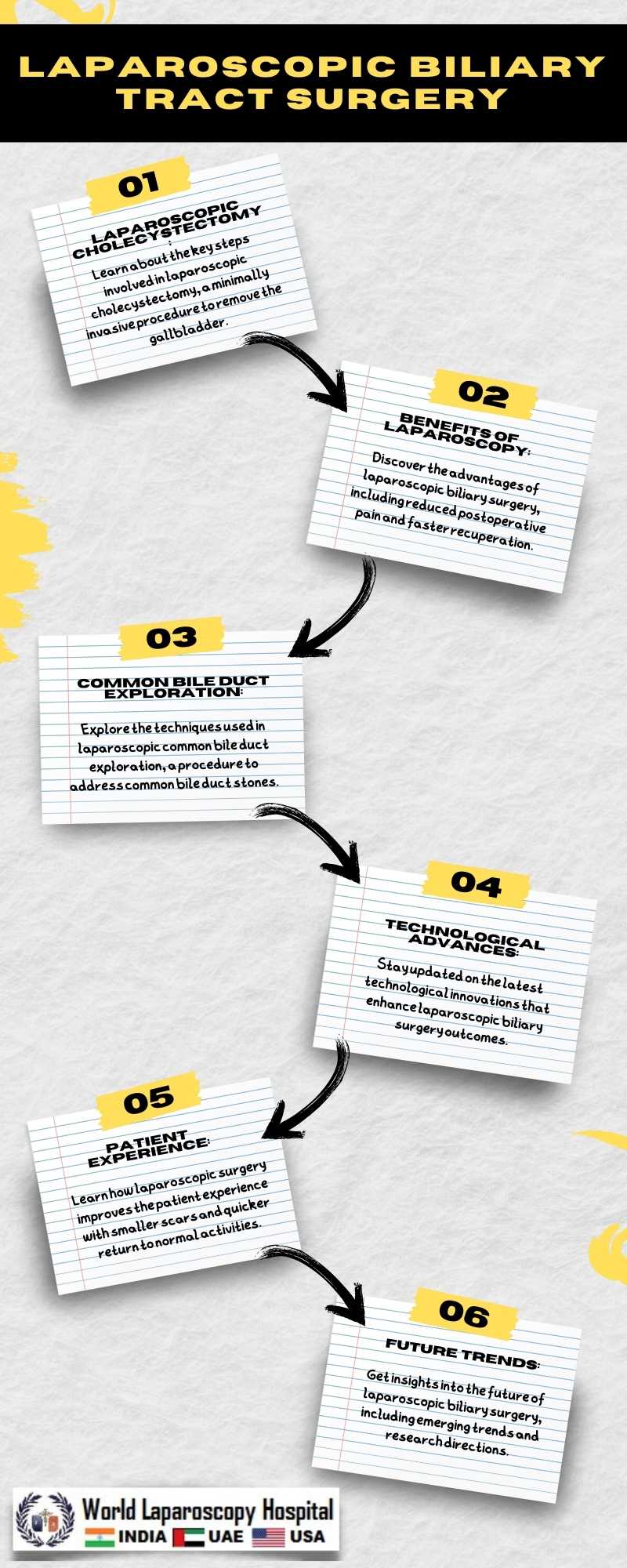Abstract:
The field of surgery has witnessed a remarkable evolution in recent decades, with minimally invasive techniques becoming increasingly prevalent. Among these techniques, laparoscopic surgery has played a pivotal role in transforming the landscape of biliary surgery. This article explores the journey from traditional incisions to incisive laparoscopic insights in biliary surgery, delving into the techniques, benefits, challenges, and future prospects of laparoscopic approaches in treating biliary tract disorders.

Introduction
The history of surgical procedures is a narrative of progression towards minimally invasive techniques. Traditional open surgeries, with their extensive incisions and prolonged recovery periods, have given way to laparoscopic surgery, which offers a minimally invasive alternative for various surgical procedures, including biliary tract surgery. This article explores the revolutionary shift in the field of biliary surgery brought about by laparoscopic approaches.
The Emergence of Laparoscopic Biliary Surgery
Laparoscopic biliary surgery emerged as a groundbreaking development in the late 20th century. Surgeons recognized the potential of this minimally invasive technique to revolutionize the treatment of biliary disorders, such as gallstones, gallbladder disease, and common bile duct stones. The article delves into the historical context and early adoption of laparoscopic techniques in biliary surgery.
Techniques and Procedures
A significant portion of this article is dedicated to detailing the various laparoscopic techniques and procedures used in biliary surgery. From laparoscopic cholecystectomy to laparoscopic common bile duct exploration, readers will gain insights into the specific approaches that have reshaped the surgical landscape.
Advantages of Laparoscopic Biliary Surgery
One of the central themes explored in this article is the numerous advantages offered by laparoscopic biliary surgery. These advantages include smaller incisions, reduced postoperative pain, shorter hospital stays, and faster recovery times. The article provides real-world case studies and statistical data to illustrate these benefits.
Challenges and Complications
While laparoscopic biliary surgery has revolutionized the field, it is not without its challenges and potential complications. Surgeons must navigate a learning curve to master laparoscopic techniques, and there are risks associated with this approach. This section of the article discusses the challenges faced by surgeons and ways to mitigate potential complications.
Innovations and Technological Advances
As technology continues to advance, so do the tools and equipment available for laparoscopic biliary surgery. The article explores the latest innovations in laparoscopic instruments, including high-definition cameras, robotic-assisted surgery, and augmented reality systems, and their impact on surgical outcomes.
Patient Outcomes and Quality of Life
A critical aspect of any surgical procedure is its impact on patient outcomes and quality of life. The article examines how laparoscopic biliary surgery has improved patient experiences, including reduced scarring, less pain, and quicker return to daily activities.
The Future of Laparoscopic Biliary Surgery
The article concludes by looking ahead to the future of laparoscopic biliary surgery. It discusses emerging trends, ongoing research, and potential breakthroughs that may further enhance the field. It also emphasizes the importance of continuous education and training for surgeons to stay at the forefront of laparoscopic techniques.
Conclusion
In summary, "From Incisions to Incisive: Laparoscopic Insights in Biliary Surgery" explores the transformative journey of biliary surgery from traditional open procedures to minimally invasive laparoscopic techniques. It covers the historical context, techniques, advantages, challenges, and future prospects of laparoscopic biliary surgery. This article aims to provide a comprehensive understanding of how laparoscopic approaches have reshaped the landscape of biliary surgery, ultimately benefiting both surgeons and patients.